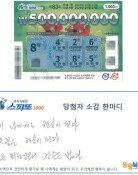Declassified Papers Reveal 70s Secrets
Declassified Papers Reveal 70s Secrets
Posted March. 31, 2006 03:01,
The Ministry of Foreign Affairs and Trade released 1,206 declassified diplomatic documents consisting of 117,000 pages from the mid 1970s on Thursday.
The papers include details of the diplomatic negotiations surrounding the East Berlin spy case, the evacuation of U.S. forces from Korea, the JAL hijacking case, and other events. The documents can be viewed at the Institute of Foreign Affairs and National Security in Seocho-dong, Seocho-gu, Seoul.
East Berlin-
The Korean government detained musician Yoon Yi-sang, who resided in Germany in 1967, on grounds that he was a spy in East Berlin. The case was later dubbed the East Berlin Case.
The diplomatic documents show that West German President Heinrich Luebke sent Ministry of Foreign Affairs official Paul Franck as a special envoy to Korea and negotiated a secret agreement from the Korean government to free two suspected spies in less than 15 days, and four awaiting trial, including Yoon, by the end of 1971.
The Korean government quickly conceded because many Europeans criticized the illegal detainment and took part in rallies opposing it.
When the state of Schleswig-Holstein invited the Korean ambassador to an event in August 1968, leftist student activists gathered in opposition and some waved Korean flags with swastikas attached to them.
On December 5, 1968, about 40 German students broke into the Korean embassy in Germany, yelling, Free the detainees. The embassy reported, For 40 minutes, the embassy was in the hands of the violent demonstrators. Some damaged the furniture, while others painted the embassy signboard red.
Ambassador to West Germany Choi Deok-shin asked Minister of Foreign Affairs Choi Kyu-hah on July 6, 1967 to dismiss him from service, stating that his presence as the ambassador would not help matters and that he wished to be repatriated.
Evacuation of American forces in Korea-
The evacuation of U.S. forces from Korea proposed by the U.S. Congress in the mid 1970s had much to do with Americas policy to improve relations with China, according to the documents.
Senator Mike Mansfield, a democrat, in a report drafted in 1975, stated that U.S. must continue its policy to appease China and that it must minimize the military aid to the Southeast Pacific region, saying that America had entrenched itself too deeply in Asian regional defense plans.
The Korean government concluded at the time that Senator Mansfield proposed the retrenchment because Americas presence in the region hindered its reconciliation efforts with China and to curtail military expenditures.
The Ministry of Foreign Affairs reported to President Park Chung-hee in May 1975, that the House of Representatives had sent a report to the Pentagon asking it to relocate the US 2nd Infantry Division in Korea because U.S. politicians were concerned that the U.S. might automatically become involved in if a war broke out on the Korean peninsula.
Japan Airlines hijack case-
On March 30, 1970, Japanese Red Army agents who had hijacked a Japan Airlines plane headed for Fukuoka after takeoff at Haneda International Airport in Japan, released hostages in exchange for Vice-minister of Transportation Yamamura Shinjiro during a 79-hour-standoff at Gimpo International Airport in Korea. The agents flew to Pyongyang with the vice-minister on April 3.
This event was finished when North Korea accepted the hostages and sent the airplane and crews to Japan.
The Japanese government thanked North Korea for its support in the conclusion to the incident without any deaths or injuries, but the Korean government expressed concern.
Then Vice-minister of Foreign Affairs Yun Seok-heon said that North Korea only did the right thing by returning the passengers and the plane, and that he could not understand why the Japanese thanked the North, saying that South Korea should reconcile with the North.







